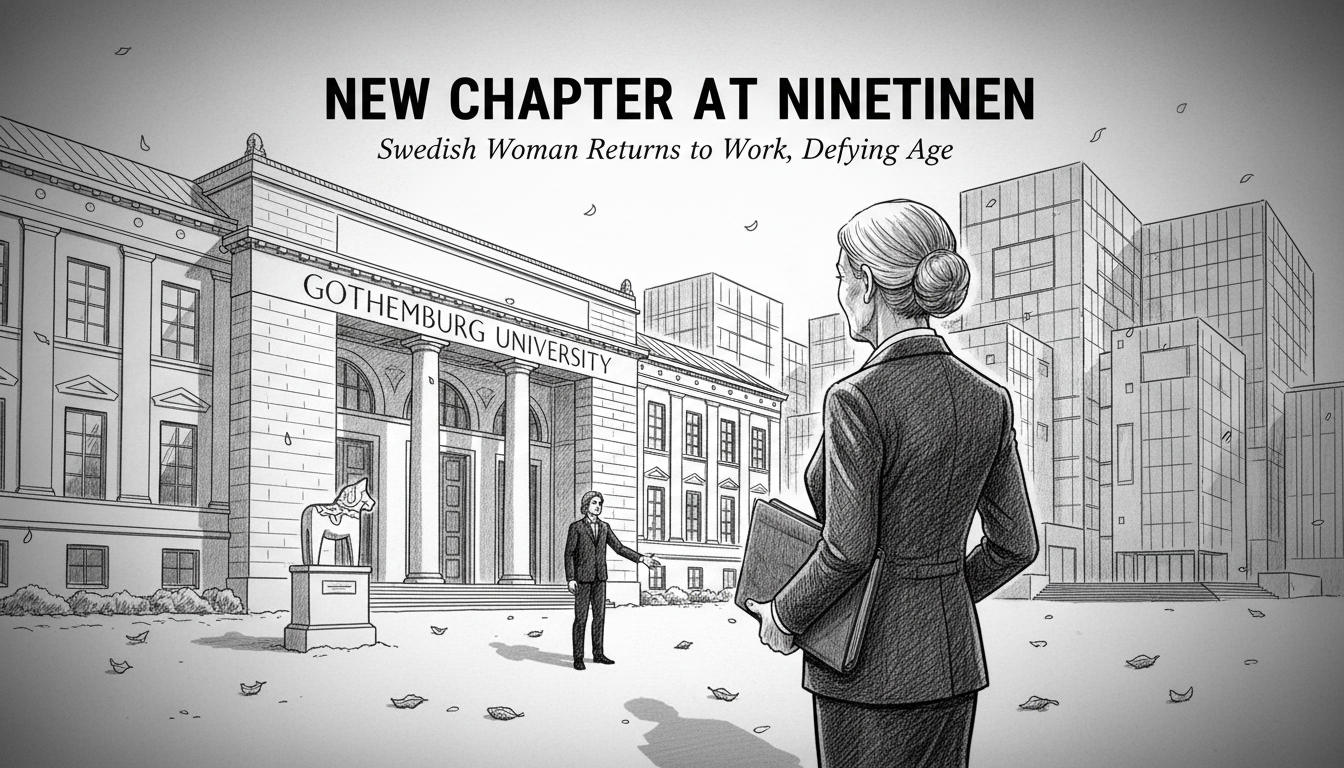A 91-year-old Swedish woman proved age is just a number when she secured a new position at Gothenburg University. Marianne Pipping Ekström had retired more than two decades ago but decided to return to the workforce. She applied for a new role and successfully obtained the position. Her achievement challenges conventional retirement patterns in Sweden and internationally.
Marianne expressed confidence in her current abilities. She stated she believes she has never been better than she is now. Her case demonstrates how older adults maintain valuable skills and contributions. Sweden's aging population makes such stories increasingly relevant for workforce planning.
Sweden maintains one of Europe's highest employment rates for older workers. The country has gradually increased retirement ages and implemented policies supporting extended careers. Marianne's story reflects these broader societal trends toward longer working lives.
Gothenburg University officials confirmed her appointment without specifying the exact role. They indicated the position aligns with her extensive professional background. Swedish universities frequently engage retired experts for specialized projects and mentorship roles.
International readers might find Sweden's approach to aging workers noteworthy. The Scandinavian country promotes active aging through flexible work arrangements and lifelong learning opportunities. This contrasts with mandatory retirement policies common in other nations.
Marianne's situation raises questions about pension systems and workforce participation. Sweden's pension reforms incentivize longer careers through income-based benefits. Her return to work after twenty years of retirement shows how personal fulfillment factors into these decisions.
Nordic countries generally report high labor participation among seniors. Sweden specifically shows nearly 20% of 65-74 year olds remain economically active. This compares to European averages below 10% for the same age group.
What does this mean for global aging populations? Societies worldwide face similar demographic shifts. Sweden's experience with older workers like Marianne offers valuable insights. The country demonstrates how to harness experienced talent rather than lose it to mandatory retirement.
Marianne's story represents more than individual achievement. It signals changing attitudes toward aging and capability. Employers increasingly recognize the value of experienced workers regardless of chronological age. Her success may inspire similar cases across Nordic countries and beyond.

